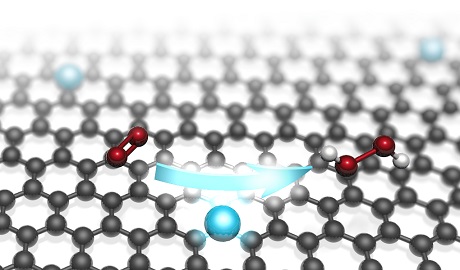Catalysis by Single Atoms and Dimers
Project period: 2019-2022
Grant Kr. 4,49 mio
The central goal of CASADI is to establish new fundamental insight into the catalytic activity of single atoms and dimers (two-atom entities). Today catalysts are typically nanoparticles but for a number of reactions we have no viable catalyst today. The quantum regime of single atoms and dimers will significantly change their catalytic properties. More importantly, by reducing the catalyst to a single active site motif, we will be able to tune the selectivity to one desired product. Especially, the prospect of bimetallic dimers is extremely interesting, since in addition to the quantum-size effects, the presence of adjacent bimetallic sites may provide a unique unexplored catalytic environment. These studies will guide us in designing and developing improved catalysts.
This project will focuses on two reactions where today’s catalyst are inadequate.
(1) Electrochemical hydrogen peroxide formation. A direct electrochemical route would be advantageous for decentralized small-scale production that could enable clean drinking water in remote areas.
(2) CO2 reduction. Reducing CO2 into chemical feedstocks and fuels in either an electro- or a thermo-chemical process holds a vast and untapped potential. Fossil fuels in the current energy system could be replaced with sustainably produced synthetic fuels in a closed carbon cycle with no net CO2 emission.
This project uses an interdisciplinary feedback loop between theory, catalyst synthesis, characterization and testing of catalytic activity and selectivity. Specifically, well-controlled single atom and dimer catalysts are prepared using a magnetron-based cluster source with time-of-flight mass filter that allows to selectively deposit single atoms or dimers onto a support. This approach will greatly increase the fundamental understanding of single atom and especially the to date unexplored dimer catalysts with the aim of discovering entirely new catalysts for reactions where no option exists today.
